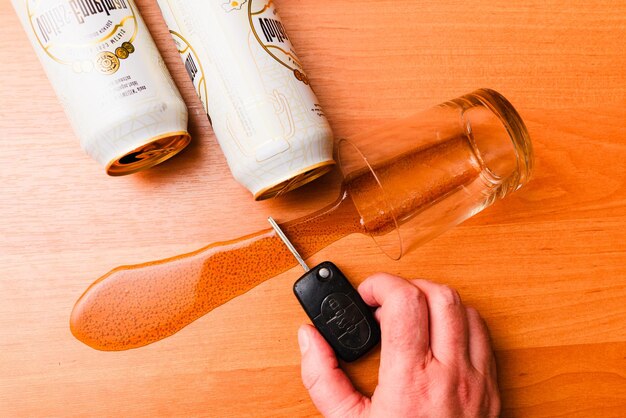How Do Sugar and Alcohol Affect Cancer Risk? Understanding the Impact
At the crossroads of navigating lifestyle choices and maintaining health, particularly when considering cancer risk, two common culprits often cause concern: sugar and alcohol. Both are integral to modern diets but come with questions about their potential impacts on cancer. As we delve into this topic, we'll untangle the complexity surrounding these dietary elements to offer a comprehensive look at their roles in cancer risk.
Exploring the Relationship Between Sugar and Cancer
The sweet allure of sugar is hard to resist, yet its connection to cancer risk prompts many to question just how much is too much.
How Sugar Influences Cancer Growth
The notion that sugar "feeds" cancer cells stems from the basic understanding of how cells metabolize glucose. Cancer cells typically consume more glucose than normal cells, and this accelerated consumption has led to theories that reducing sugar intake could slow cancer progression. While this connection is compelling, it's crucial to distinguish that consuming sugar doesn't inherently cause cancer. The real challenge is managing dietary habits to avoid other health issues like obesity, which is a known risk factor for various cancers.
Obesity: The Sugar-Cancer Connector
High sugar intake can lead to obesity, indirectly increasing cancer risk. Obesity is associated with inflammation and hormonal imbalances, both of which can contribute to cancer development. Thus, maintaining a balanced diet that limits refined sugars can support weight management and potentially lower cancer risk.
Alcohol’s Role in Cancer Risk
While many enjoy a glass of wine or beer with dinner, understanding how these choices impact cancer risk is essential for informed decision-making.
Alcohol and Its Carcinogenic Properties
Alcohol is a known carcinogen, linked to several types of cancer, including breast, liver, and colorectal cancer. When alcohol is metabolized, it converts into acetaldehyde, a toxic compound that can damage DNA. Damage to DNA is a critical factor in cancer development, so minimizing alcohol intake can help mitigate this risk.
The Factor of Moderation
The mantra of "everything in moderation" certainly applies to alcohol. While moderate consumption has been associated with certain health benefits, such as heart health, it's also important to consider individual risk factors such as family history or underlying health conditions. Even modest intake levels can increase cancer risk, especially for certain types.
Balancing the Scales: Sugar vs. Alcohol
Given their distinct pathways to potentially increasing cancer risk, is one genuinely worse than the other?
Evaluating Personal Risk Factors
The impact of sugar and alcohol on cancer risk can vary significantly based on personal health profiles. Factors such as genetics, lifestyle, and existing health conditions should all play a role in dietary decisions. Smoking, physical activity, and stress levels can also influence how sugar or alcohol affects an individual’s cancer risk.
Practical Tips for Reducing Risk
- Moderation and Balance: Limit sugar and alcohol without completely eliminating them, allowing for a balanced lifestyle.
- Nutritional Awareness: Opt for whole foods and reduce consumption of processed foods that often contain added sugars.
- Limit Alcohol: Consider swapping alcoholic beverages for mocktails or low-alcohol alternatives.
- Stay Informed: Regular medical check-ups and discussions with a healthcare provider can help tailor individual dietary choices.
Life Beyond Diet: Comprehensive Cancer Prevention Strategies
While sugar and alcohol consumption are influential, the broader lifestyle context is vital for cancer prevention.
Importance of a Holistic Approach
A comprehensive cancer prevention strategy involves more than just limiting sugar and alcohol. Diet is just one component. Effective strategies include:
- Regular Physical Activity: Engaging in consistent exercise can help manage weight and reduce cancer risk.
- Stress Management: Chronic stress can affect overall health and immune function, highlighting the importance of stress relief through adequate sleep, mindfulness practices, or social support.
- Smoking Cessation: Avoiding tobacco is crucial, as smoking dramatically increases the risk for numerous cancers.
Together, these elements form a protective lifestyle framework against cancer, guiding choices regarding sugar and alcohol more effectively.
Final Insight
Ultimately, determining whether sugar or alcohol is worse for cancer involves considering broader lifestyle choices and individual risk factors. Awareness, balanced habits, and informed decisions empower individuals to reduce cancer risk while enjoying life.
Key Takeaways:
- 🍬 Sugar Risks: Indirectly raises cancer risk mainly through obesity.
- 🍷 Alcohol Risks: Directly linked to various cancers and is a defined carcinogen.
- 🔄 Balance and Moderation: Essential for a healthy lifestyle.
- 🥗 Broader Lifestyle: Includes exercise, healthy diet, and stress management.
- 🧠 Stay Informed: Regular health evaluations and personalized advice are recommended.
Making mindful decisions about sugar and alcohol can establish a healthier foundation, but broader preventive measures remain equally significant. Focusing on overall wellness can fortify defenses against cancer while enriching one's quality of life.

Related Articles
- Are Breast Cancer Lumps Painful
- Are Chills a Sign Of Cancer
- Are Colon Spasms a Sign Of Cancer
- Are Lytic Lesions Always Cancer
- Are Polyps Cancer
- Can a Blood Test Detect Cancer
- Can a Ct Scan Detect Cancer
- Can a Dexa Scan Show Cancer
- Can a Gastric Emptying Scan Show Cancer
- Can a Lung Biopsy Cause Cancer To Spread
